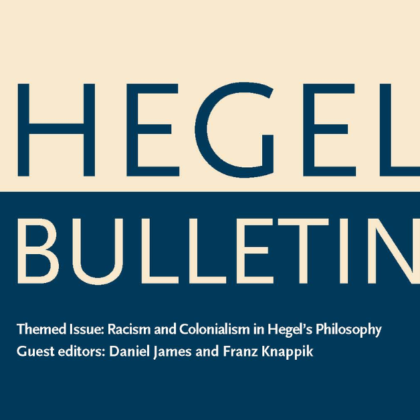Mutual recognition or tragedy?
Hegel’s philosophy is notoriously difficult, but when I first studied his Phenomenology and Philosophy of Right in the mid 1970s I was struck by a simple idea that is at the core of both works: you can’t be yourself by yourself, but you need others in order to be who you are. This idea—that we are essentially social, interrelated beings—has underpinned my understanding of Hegel, and of life, ever since. Of course, there are many circumstances in which others prevent us from being ourselves (and vice versa), and Hegel is well aware of this. Think of his penetrating analysis of poverty and alienation in civil society—problems that continue to blight the modern world. Yet Hegel’s response to such distortions of social life is not to recommend self-absorbed isolation—moral, economic and political “distancing”—but to urge us to deepen our shared identities as human beings. Central to this endeavour, for Hegel, is learning to let go of oneself and accord recognition—through respect, love or forgiveness—to others; and we see striking examples of such letting-go in the hypocrite’s confession and consequent forgiveness by the hard-hearted judge in the Phenomenology. This “reciprocal recognition”, Hegel writes, “is absolute spirit” (Phenomenology of Spirit, ¶670), and it recommends itself, in my view, to the hypocrites and hard-hearted judges of today, too—a group that in one way or another includes all of us.
If, however, we refuse to let go of ourselves and we insist on asserting our unrelenting judgement or unyielding will, Hegel has a stark lesson for us: such self-assertion will lead to tragedy. Tragedy was one of the first subjects in Hegel that I worked on, and I still regard his understanding of it as profound. Tragedy, for Hegel, is produced, not (as for Nietzsche) by the interplay of the “Dionysian” and “Apollinian”, but by taking oneself (or ourselves) to be the sole embodiment of the true and the good. In Hegel’s view, we are destroyed, not by the tragic condition of life, but by our own unyielding insistence on satisfying ourselves before all others (as both Sophocles and Shakespeare knew well). We come to be truly ourselves, therefore, by learning to let go of ourselves and thereby to form bonds of mutual recognition with others. It was said once that “whoever seeks to gain his life will lose it, but whoever loses his life will preserve it” (Luke 17: 33), and this seems to me to express in religious language exactly what Hegel understands by tragedy, dialectic and “spirit”. It is not a guide to every situation in life: there are times when one has to stick to one’s judgement and fight. Yet doing so, in Hegel’s view, should always be in the service, ultimately, of letting-go, mutual recognition and the freedom this brings with it. For me, this has been and continues to be one of the most important and inspiring insights in Hegel’s thought.






